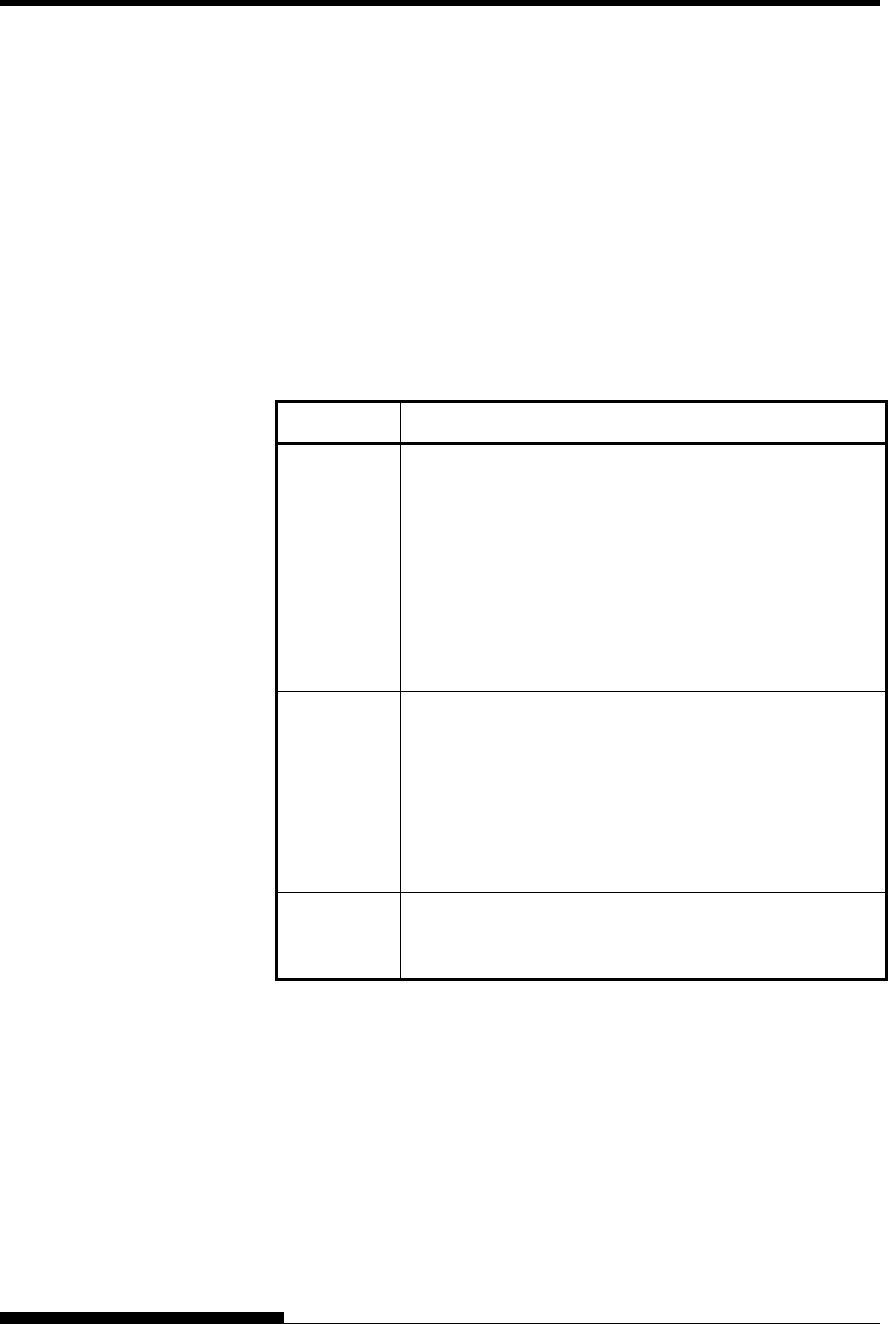
INTERFACE INFORMATION
Serial Protocols
A protocol is a set of instructions that control the way data is transmitted
between devices such as a computer and printer. The protocol ensures
that the computer does not send information to the printer faster than the
information can be processed. By telling the computer when the printer
can receive data, the protocol prevents the printer s buffer from
overflowing.
This printer offers a choice of four different protocols for connection to a
variety of computers: XON/XOFF, DTR, and RC. If you computer
documentation does not recommend a particular protocol, try DTR. The
following table describes the three protocols.
Protocol Description
XON/XOFF
(DC1/DC3)
When the printer is ready to receive data, it sends the
XON (DC1) code (hex 11). When fewer than 255 bytes
of space remain in the buffer (or when the printer is taken
offline), the printer sends the XOFF (DC3) code (hex 13).
(When the input buffer is configured for 256 bytes, the
buffer limit is reduced from 255 bytes to 63 bytes.) The
computer must stop transmitting data within 255 (63)
characters of receiving the XOFF code, or information
may be lost. If paper runs out, the printer sends an NAK
code (hex 15).
DTR
DTR is a hardware protocol; that is, the DTR signal on
interface cable pin 20 is used to control the flow of data
rather than transmission of a character code. When the
printer is ready to receive data, pin 20 is high. When
fewer than 255 (63) bytes of space remain in the buffer
(or when the printer is taken offline), pin 20 is low. The
computer must stop transmitting data within 255 (63)
characters of DTR being low, or information may be lost.
RC
The RC protocol is the same as the DTR protocol, except
that the Reverse Channel signal (pin 11) is used instead of
the Data Terminal Ready signal (pin 20).
D-10 User's Manual


















